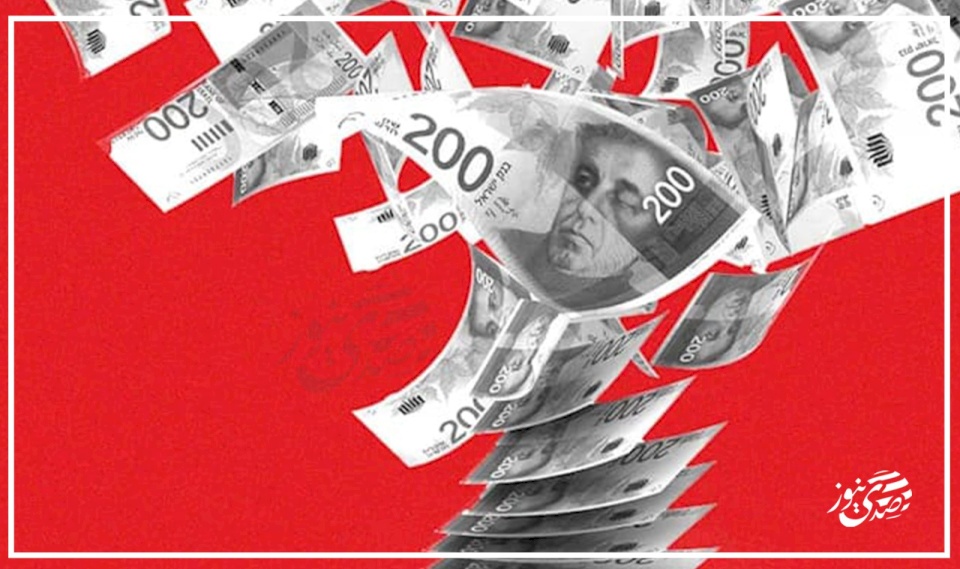
Israel Introduces Legislation to Prevent Holding Cash Amounts Exceeding 200,000 Shekels
SadaNews Translation - A study showing a close link between the use and possession of cash and crime globally has prompted the Israeli Knesset to introduce a bill prohibiting the possession of cash amounts exceeding 200,000 shekels as part of the budget legislation for the years 2023 and 2024; and now again, as part of the budget legislation for 2026.
According to the Hebrew economic newspaper Globes, as translated by SadaNews, the proposal falls under the section related to combating illicit funds and aims to impose a criminal ban on possessing cash amounts exceeding 200,000 shekels, as well as imposing an administrative fine on violators.
An Israeli tax authority source explained that "the restrictions on holding amounts exceeding this figure are not expected to impact the general public, but rather the criminal elements that rely on cash activities."
Opponents of this step argue that it would constitute a gross violation of privacy and limit economic freedom.
The bill stipulates that this restriction will only be implemented after the Bank of Israel establishes a plan for absorbing cash in banks, but it does not specify what this plan will include.
Currently, numerous restrictions apply to cash deposits in banks due to anti-money laundering regulations and the requirement to prove the source of funds, and the law does not clarify how to circumvent these restrictions.
Attorney Uri Goldman, an expert in anti-money laundering, as translated by SadaNews, states that this is where the main problem lies for those who keep large cash amounts in safes inside their homes. A previous bill capping cash at 200,000 shekels was canceled in the past because it did not offer a solution for how people might suddenly become criminals without a way to rectify their situation, for example, through depositing money in banks and money transfer offices.
He added: The voluntary disclosure process initiated by the tax authority is not ideal either, as it does not obligate banks to accept funds subject to voluntary disclosure, and numerous complaints have been reported in this regard, particularly concerning cash.
According to the newspaper, there is another problem in how the law will be enforced, as translated by SadaNews, especially since the tax authority is not prepared to enforce it and certainly is not expected to do so, lacking the necessary authority to conduct random raids on ordinary citizens' homes to check if they are hiding large amounts of cash. This legislation is aimed at cases where raids are carried out as part of investigations against criminals, and cash is found in safes and offices and homes.
Attorney Itai Barakha, an expert in tax law, anti-money laundering, and voluntary disclosure, notes that retaining these cash amounts could be classified as criminal activity, and in this case, the state is entitled to seize the proceeds of crime and conduct raids when suspicions arise regarding criminal activity during investigations. Criminals hiding millions of shekels in cash will not suddenly report this money just because of a legal prohibition.
He adds: There is concern that the law will turn ordinary "honest" citizens into unwilling criminals overnight, and caution must be exercised in this matter.
According to the newspaper: For more than a decade, the Israeli government has been seeking to limit cash use to combat illicit funds, which also fuels the increasing crime rate in Israel, particularly in the Arab community.
Restrictions on cash in Israel began with the publication of the findings of the Luker Committee, chaired by Haril Luker, the then Director General of the Israeli Prime Minister's Office. Luker confirmed that even at that time, about one-fifth of economic activity in Israel was not reported, meaning it is part of the black economy. This indicates that, in addition to the funds used by criminal organizations, there is widespread tax evasion, with a tax revenue loss estimated at between 40 to 50 billion shekels annually, an amount approximately equivalent to the entire budget of the Ministry of Defense, the Ministry of Health, or the Ministry of Education in Israel.

The Problem of Shekel Overcrowding Worsens.. Fuel Station Owners Threatened with Closure o...

The Palestinian Economy at a Crossroads: 4 Files Awaiting Resolution

Mas Institute Publishes New Study on "Political Economy and Challenges of Palestinian Deve...

A Strong Blow to Smotrich: The Knesset Abolished Doubling the VAT Exemption for Online Pur...

Exchange Rates of Currencies Against the Shekel on Tuesday (February 24)

Oman: Ministerial Decision to Establish the "Palestinian Endowment Foundation" with a Capi...

Newspaper: 'Peace Council' Prepares Plan to Launch 'Digital Currency' for Gaza Aimed at Dr...
